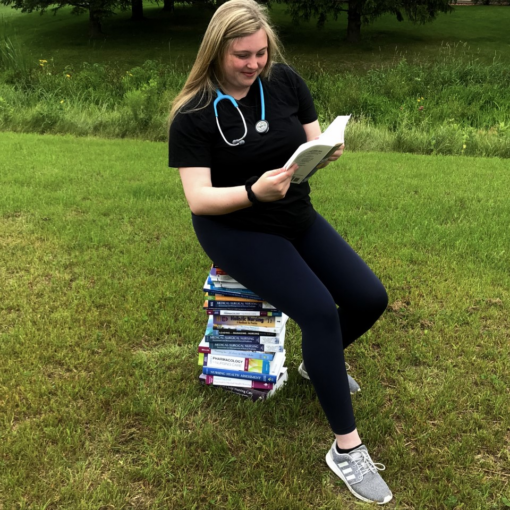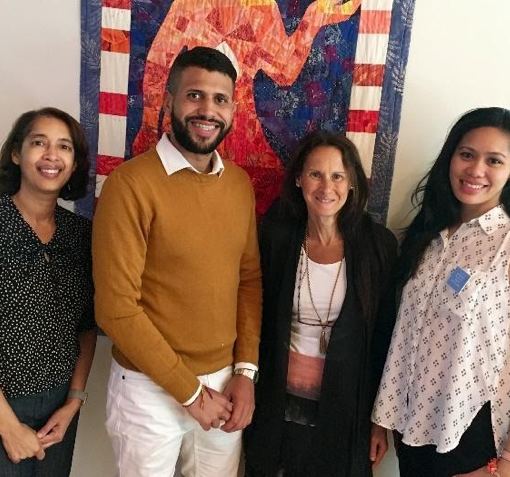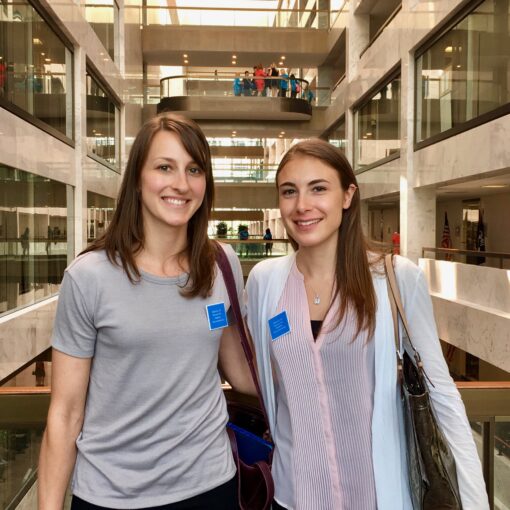As part of the Alliance of Nurses for Healthy Environments (ANHE)’s Month of Action, ANHE staff have been working with nurses across the country to book meetings with their Senate and House Representatives. As trusted professionals in all communities, it is important for nurses to make their voice heard as upstream policy decisions that impact human health are being made. In Arizona, three nurses took a united stand and asked staff members from Senator Mark Kelly and Senator Kyrsten Sinema to support health-related issues they are encountering daily in their work and life. The issues they addressed are ones that are currently weighing heavy on the hearts of all Americans and will become more frequent and intense as our climate changes and the earth warms. Their goal was to help Representatives understand the local impact of climate change and the importance of voting for the Bipartisan Infrastructure Package and the Budget Reconciliation.
The Arizona nurses discussed the impact of poor air quality on school-aged children, with increased haze over Phoenix, and local schools, especially those near highways, raising flags to indicate poor air quality that would indicate children with asthma and respiratory disease should stay indoors. A second issue raised was the impact of climate change on Native Americans, with winds in Tuba City eroding sand dunes and inundating houses, burying grazing lands and blocking roads. Drought has made heat waves more difficult to endure, with communities such as Window Rock with no water supply at all. A final discussion point was the many COVID-19 patients presenting with underlying lung diseases, such as asthma and COPD, increasing their risks for poor outcomes. Lauren Cotter, of Fountain Hills, AZ, started her nursing career only six months ago and discussed the emotional burden of treating so many patients, often younger than herself, on ventilators and ultimately passing away.
“This shouldn’t be happening. A lot of these COVID patients have coexisting conditions that are linked to climate change – asthma, emphysema, chronic bronchitis, heart disease, obesity – All of these things are made worse by climate change. It’s just this huge snowballing effect, and it’s something we need to address now. Climate change has reached a critical point and we cannot push it off to the next generation. If the pandemic has taught us anything it is that we need to take preventative health seriously, and a big part of that can be addressing climate change issues.” -Lauren Cotter, 25
Finally, the nurses reminded both Senator Kelly and Senator Sinema that we had worked hard to get them elected and we were counting on them to vote for legislation that would improve the health of people throughout the state of Arizona. Nurses in Arizona and across the country will be paying attention as the Senate debates current legislation over investing in climate change over the next few weeks.
The time is now for nurses to take action, please contact your representatives this week and ask for their vote in support of the Bipartisan Infrastructure Package and the Budget Reconciliation. These bills make big, bold, and ambitious investments required to tackle the climate crisis, achieve true environmental justice, and accelerate the transition to clean energy. All of these steps are needed to improve our health.
The nurses in this story who met with their Arizona Senators include Pat Kelly, Patricia Vanmaanen, and Lauren Cotter.
Find your Representative’s contact information here.
Read more about the health impacts of climate change from the ANHE report What the Science Teaches Us About Common Solutions to Climate Change and Family Health Problems.




